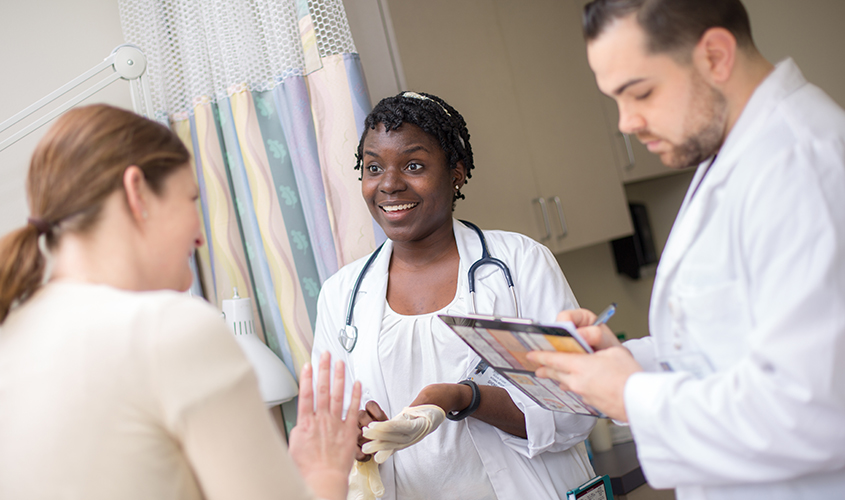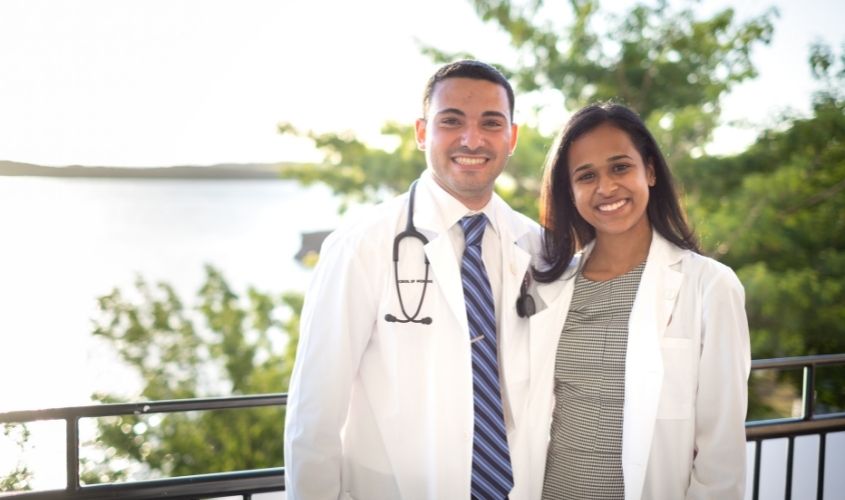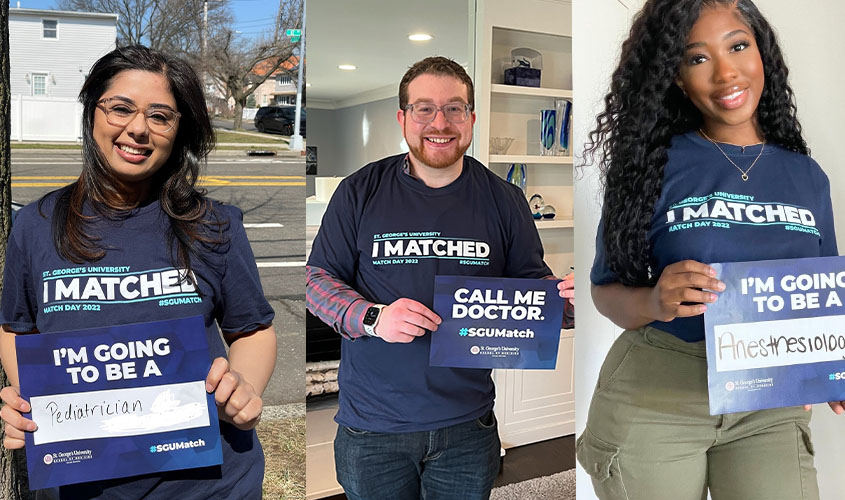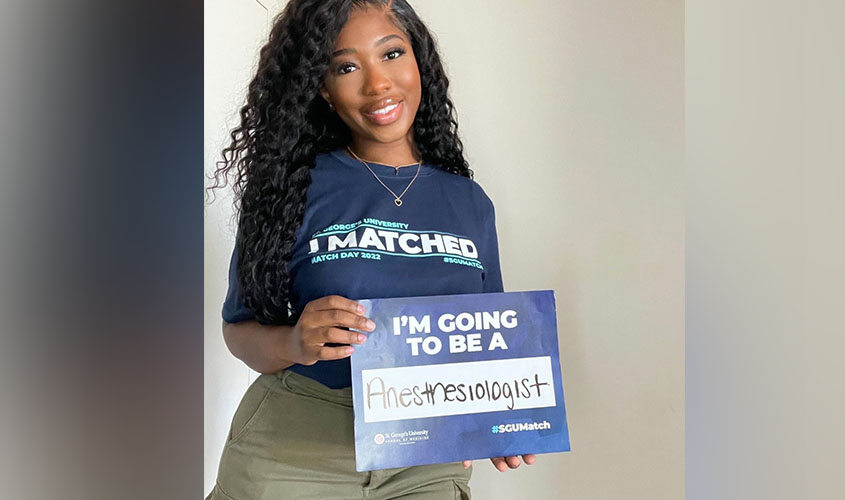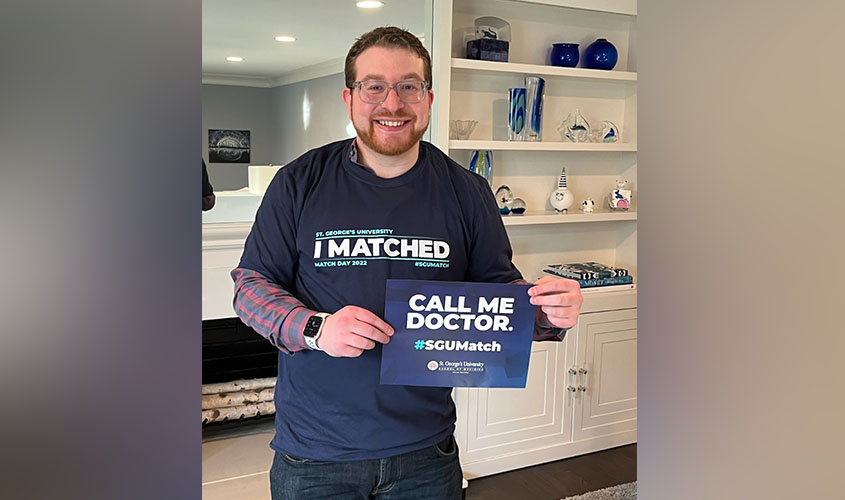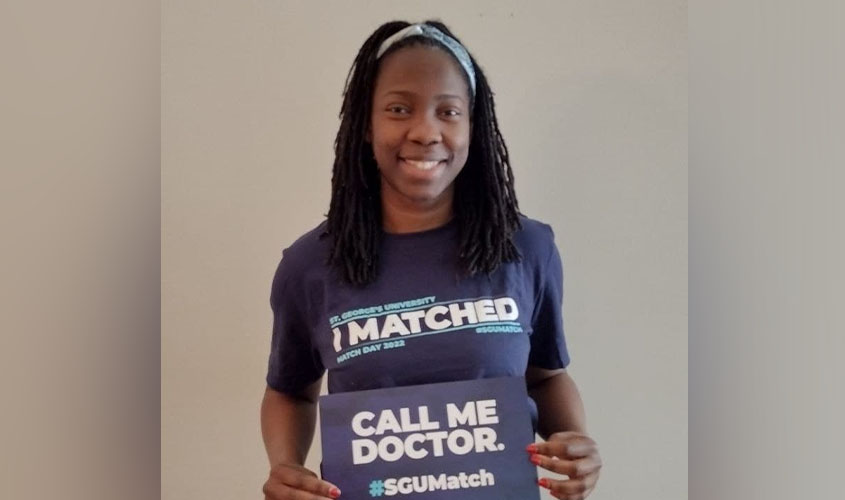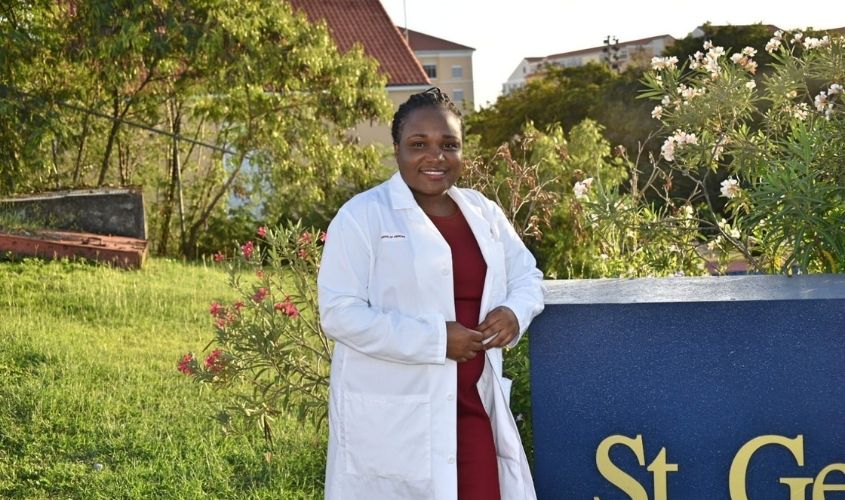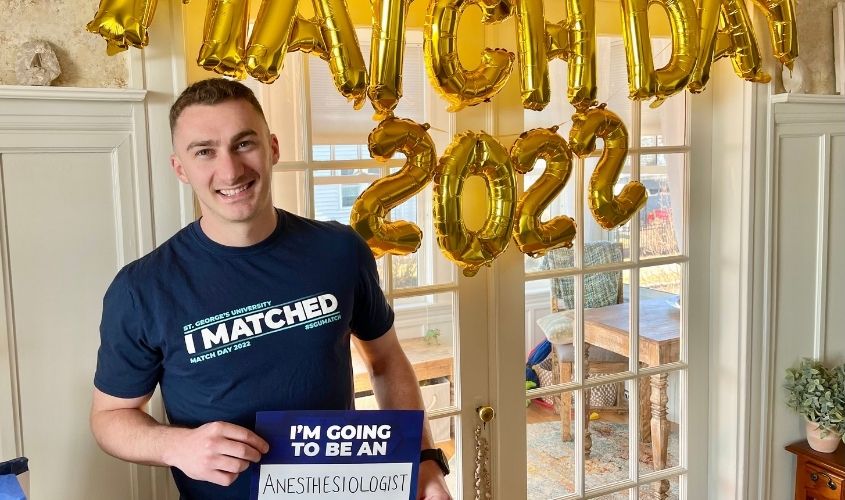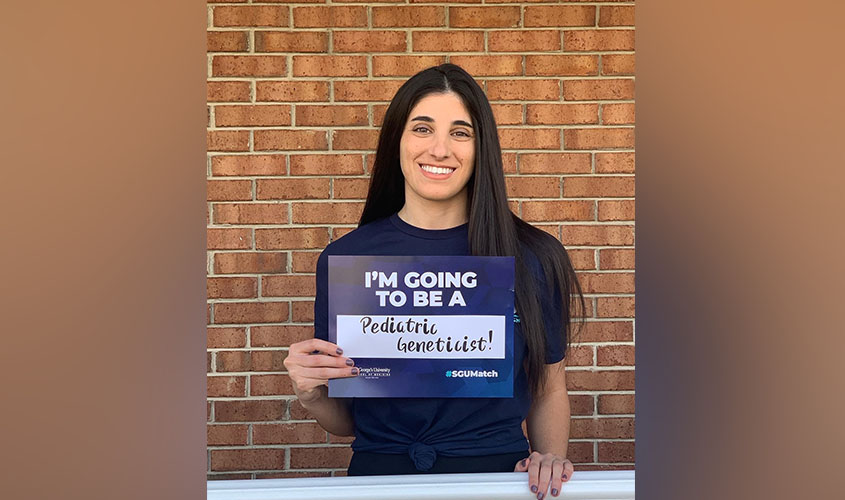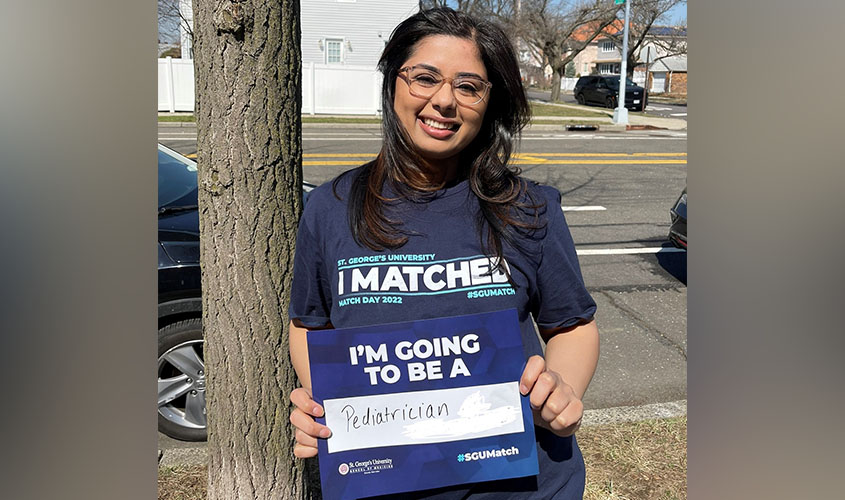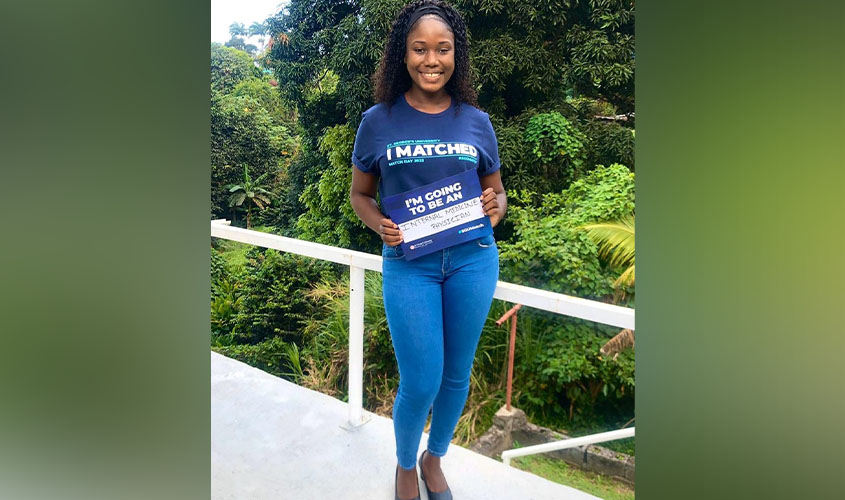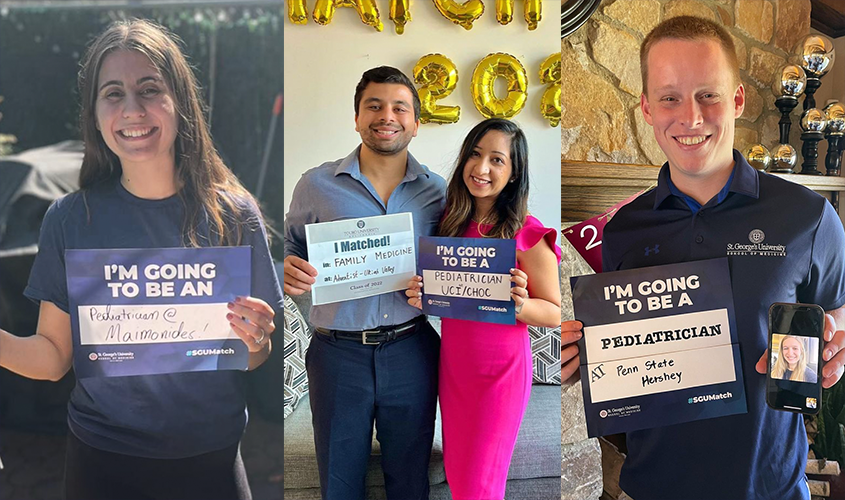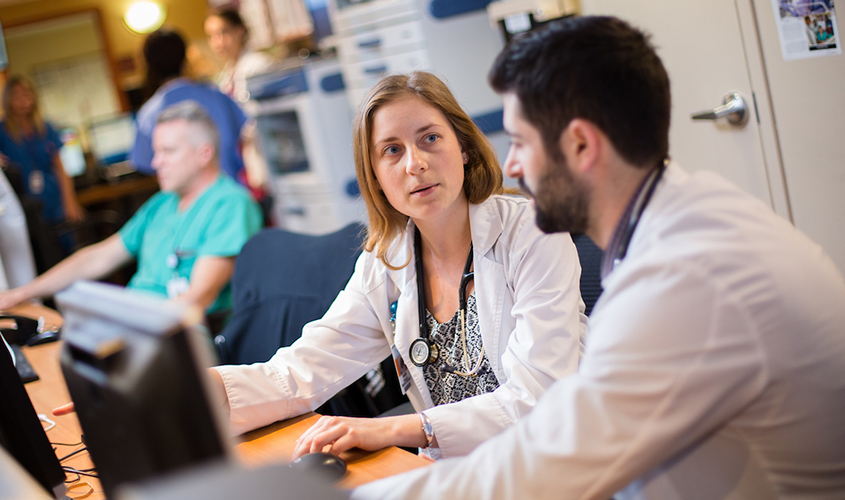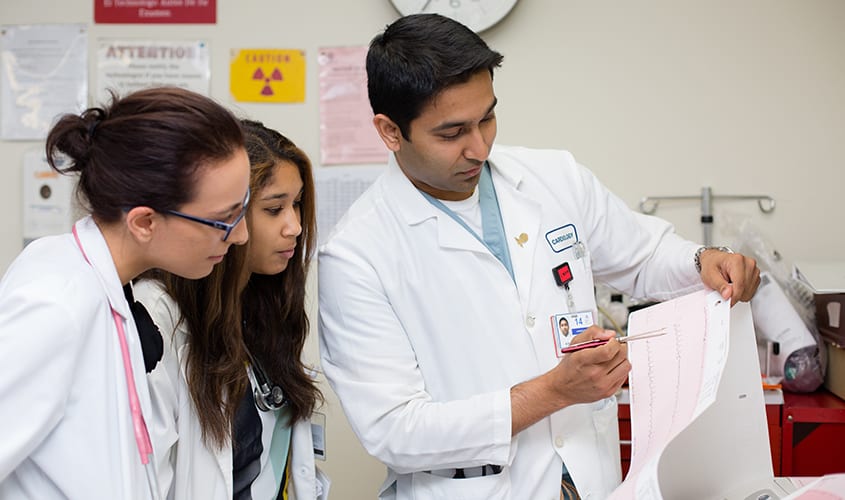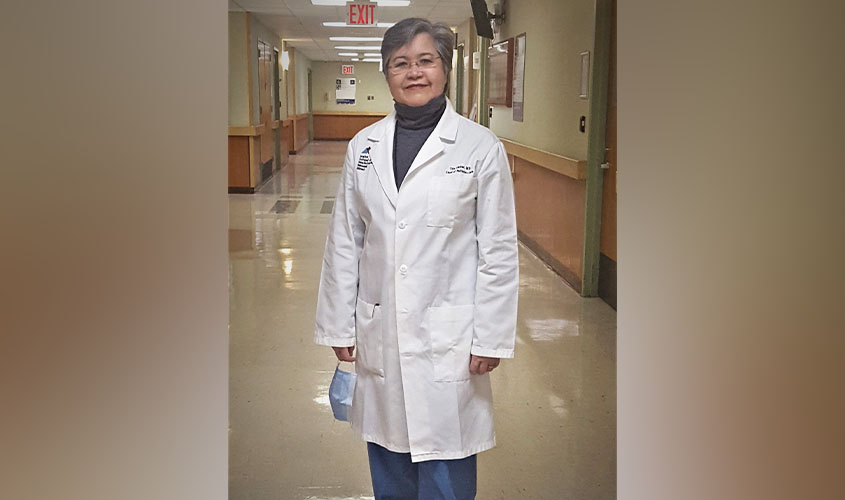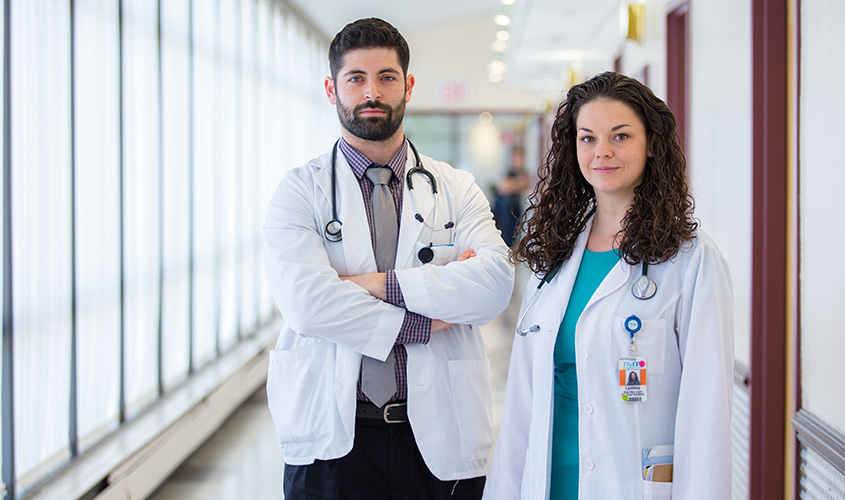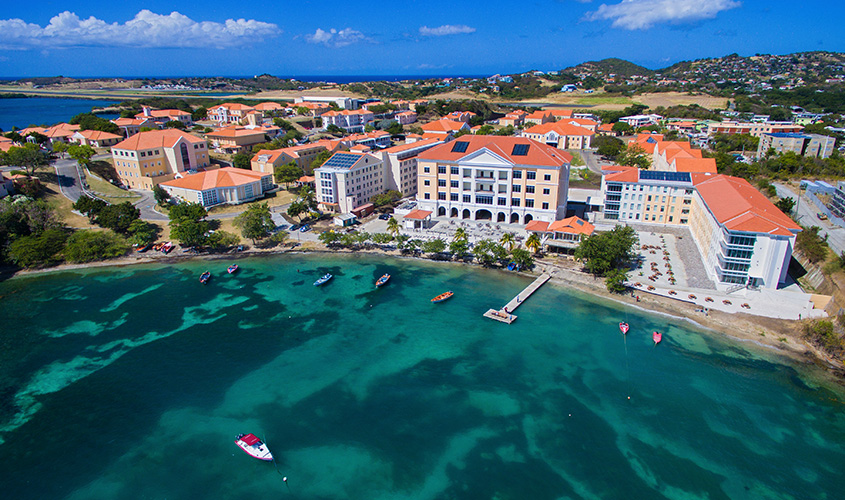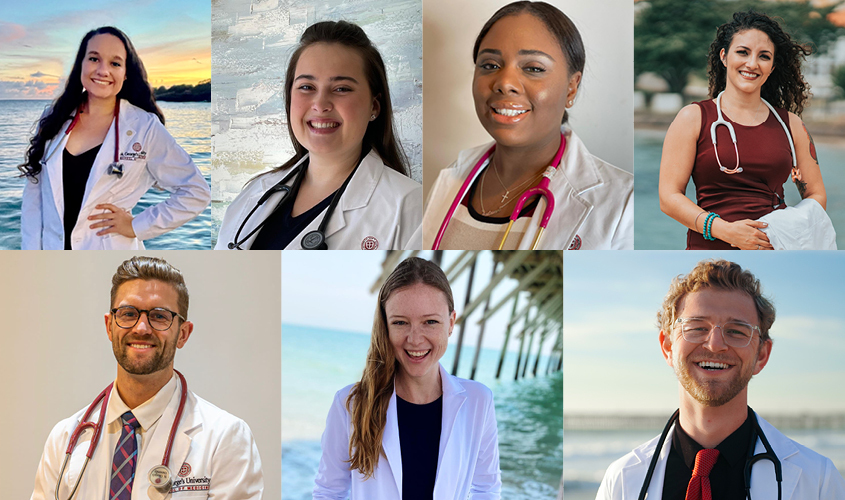Aspiring physicians commit to the medical profession at Spring White Coat Ceremony
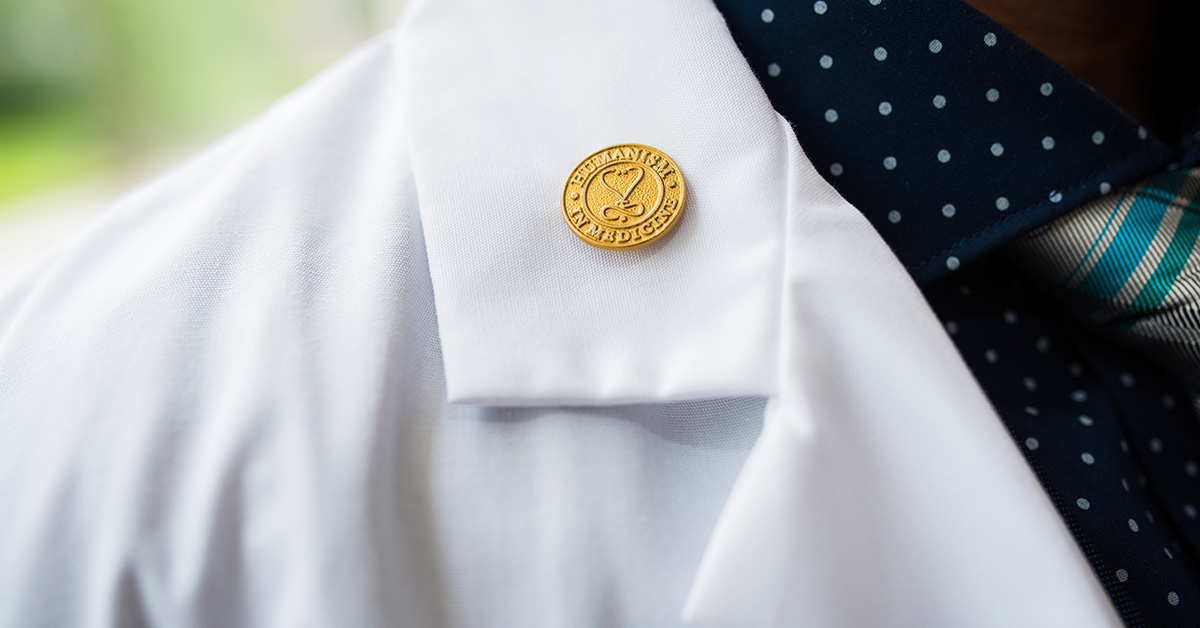
In celebration of the milestone moment that marks the entry into the noble profession of medicine, last week St. George’s University held virtual White Coat Ceremonies for students who recently entered medical school.
“This moment is a big deal,” said Dr. Gabrielle Walcott-Bedeau, MBA ’17, an assistant professor in the Department of Physiology, Neuroscience and Behavioral Science and the day’s master of ceremonies. “The white coat comes with great responsibility and to whom much is given, much is expected.”
In her prepared remarks during the ceremonies, Dr. Walcott-Bedeau congratulated the physicians-in-training on joining the SGU family and reminisced on the sense of pride she felt when donning her own white coat, which she touts as the most recognizable symbol of her profession.
White Coat Ceremonies are a storied tradition within medical school. The ceremony signifies students’ official beginning on their journeys to becoming physicians. During the event, a white coat is placed on each student’s shoulders—sometimes by family members or mentors who have become doctors before them. Students then recite the Oath of Professionalism, in which they pledge to uphold the highest of ethical standards while treating patients.
SGU held two virtual White Coat Ceremonies—on March 12 and 13 for January 2022-entering students and will hold an additional two ceremonies on March 26 and 27 for August 2021-entering students.
“Your faculty will teach you all about health and disease and how to diagnose it and treat it, but it’s your patients that will teach you how to be a better doctor—listen to them.”
This year’s White Coat Ceremony keynote speaker was Dr. G. Richard Olds, president of SGU and a tropical disease specialist. He shared some words of wisdom with the newest class of future doctors as they go through their careers.
“I’m sure all of your family and friends are very proud of you today, and it’s with great excitement that you put on that white coat,” said Dr. Olds. “However, when you put it on, remember that it signifies what’s most important among physicians. Your faculty will teach you all about health and disease and how to diagnose it and treat it, but it’s your patients that will teach you how to be a better doctor—listen to them.”
Starting Medical School During a Global Pandemic
During the ceremonies, SGU Provost Dr. Glen Jacobs praised the medical students for continuing to adapt to the global changes around them. He acknowledged that although challenging at times, these experiences would contribute to their resilience and help them navigate life as they grew personally and professionally throughout their time at SGU and thereafter.
“We remain dedicated to supporting you as you start your journey in the School of Medicine,” Dr. Jacobs said in his welcome remarks,. “I’m looking forward to the day when all of you will be back on campus, but for now focus on how this pledge of commitment to your chosen lifelong profession brings you together as future physicians.”
Dr. Marios Loukas, the dean of the School of Medicine, also welcomed the Class of 2026, reminding them that as they now wear their white coat, they pledge an oath of professionalism and service.
“In entering the field of medicine you will join a community where (being part of a) team is of utmost importance to success, as compared to individual effort,” stated Dr. Loukas. “To this end, you must strive for excellence in your pursuit of knowledge.”
– Ray-Donna Peters
